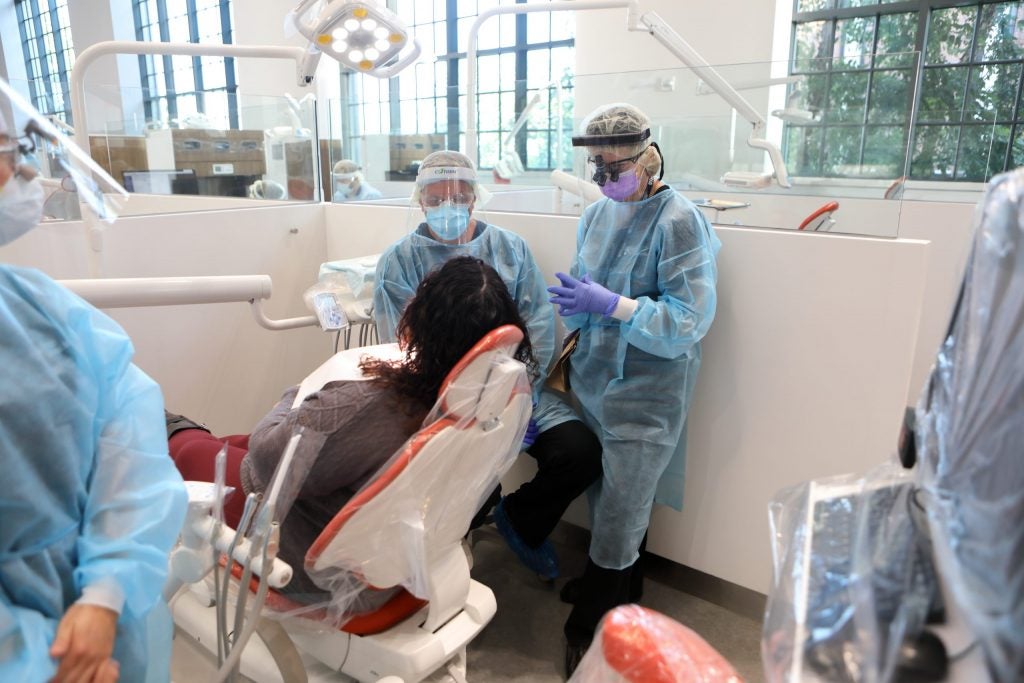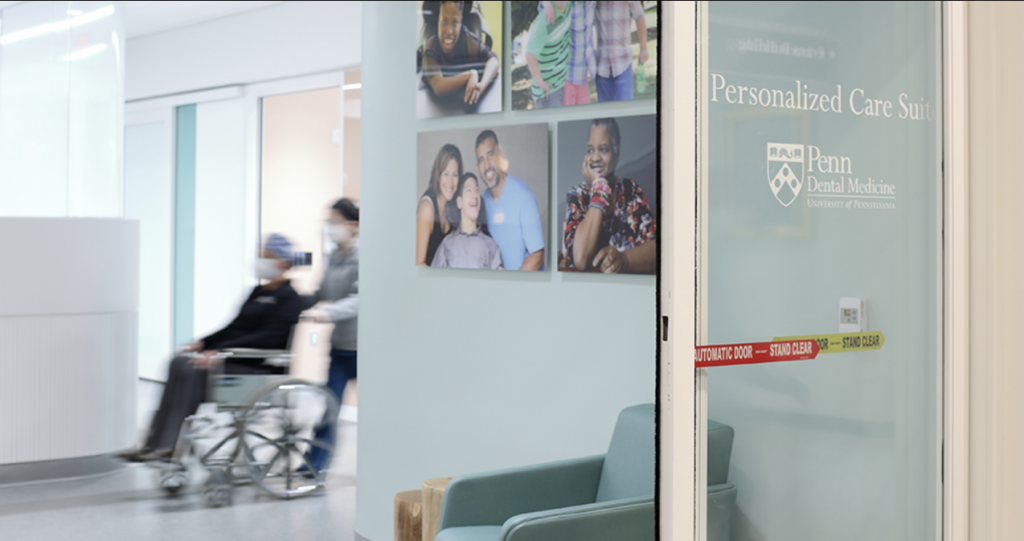$25 Off: New Patients
Save $25 on your first PDM visit.
DOWNLOAD COUPONFor many people, visiting the dentist for regular oral care can be an anxiety-inducing experience. For adults with autism, a dental appointment can be even more daunting.
Penn Dental Medicine’s Care Center for Persons with Disabilities is proud to be a local dentist for autistic adults. Here, patients can expect compassionate, experienced care that caters to their needs, wherever they fall on the spectrum.
Autism refers to several developmental disorders that affect communication, social interaction, and behavior. No two people are exactly alike, which is why the condition is referred to as autism spectrum disorders, which reflects individual experiences.

Although the disorders do not cause any difference in individuals’ teeth or oral health themselves, they can contribute to habits or behaviors that lead to oral health problems. Research indicates that people with developmental disorders have a higher burden of dental disease, in large part because of the limited availability of dentists for autistic adults.
Another significant barrier to dental care for adults with autism spectrum disorder is the extreme anxiety that seeing a provider — even a dentist for autistic adults with the training to care for persons with disabilities — can cause. Sometimes dental practices are not set up to accommodate the needs of these patients, who may be more sensitive to light, sound, and pain, and instead turn to anesthesia to help reduce anxiety during dental treatments. This is not always ideal, for various reasons ranging from cost to the potential for side effects.
Adults with developmental disorders are also at risk for oral health issues due to aspects of their condition. For example, poor oral hygiene is common. Autism spectrum disorders can make brushing and flossing uncomfortable and overwhelming, so it’s not done as thoroughly or often as it should be. Patients may also put off appointments for professional cleanings and exams, so potential issues aren’t always caught and treated until they become a serious problem.
Other common dental concerns for adults with special needs include:

Because these issues are so prevalent, a dentist for autistic adults working in an environment that supports their needs is a crucial element in providing comprehensive care.
Several elements of the typical dental visit can be especially uncomfortable for an adult on the autism spectrum. While almost no one especially enjoys lying in the chair under the bright lights, for someone with an autism spectrum disorder, even a routine exam can be an overwhelming, and even painful, experience.
Some of the issues that occur during a dental visit that can be problematic include:
The Personalized Care Suite at the Penn Dental Medicine Center for Persons with Disabilities is designed to meet the needs of adults with special needs, including autism spectrum disorders. The Care Center uses the most advanced methods and technologies to make dental care as comfortable as possible. This includes:
Everyone deserves good oral health, and the Care Center for Persons with Disabilities makes it possible for adults with autism spectrum disorders to feel comfortable and see the dentist without excessive anxiety. Click here to learn more about the Care Center and what to expect, and make an appointment today.
Get Your Appointment Now
We look forward to serving you and your family.